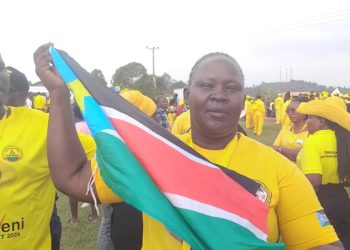Despite numerous government interventions aimed at addressing Gender-Based Violence (GBV), progress has been minimal, with a low prosecution rate for such cases.
The Civil Society Budget Advocacy Group (CSBAG) has pointed to inadequate funding as a significant factor, resulting in many victims feeling hopeless due to the absence of justice.
Emmanuel Kashaija, a member of CSBAG, emphasizes that the circumstances surrounding GBV have not significantly improved, as only a small percentage of victims achieve justice through the resolution of their cases.
“Out of the 12,700 defilement cases reported in 2023, only 940 convictions were secured. This can partly be attributed to financing inadequacies in key institutions and interventions that deal with prevention, mitigation and management,” he noted.
Kashaija together with other officials from CSBAG made a presentation before the Committee on Gender, Labour and Social Development, on January 14, 2025.
During the session, he highlighted the funding deficiencies faced by the Directorate of Public Prosecution and the Child and Family Protection Unit of the Police.
He pointed out that these financial shortfalls have hindered the prosecution of cases, resulting in persistent issues such as Female Genital Mutilation (FGM), despite the presence of legal frameworks.
He further emphasized that when victims come forward to report incidents, the police lack the necessary resources to effectively navigate communities and respond to urgent cases, particularly those involving rape or defilement.
“The victims are instead the ones that are asked to facilitate the process, those who require a medical form to confirm rape or defilement are asked to go to the district headquarters or hospitals. In most cases, the victims give up and perpetrators are left free,” Kashaija added.
CSBAG urged Parliament to allocate sufficient funding for the agencies responsible for prosecuting GBV cases, requesting that a minimum of shs2.6 billion be designated for awareness and public education initiatives.
Workers MP, Margret Rwabushaija, emphasized that in addition to financial support, it is crucial to evaluate the shortcomings of the judicial system in addressing the cases, referencing the existence of ‘modern slave markets’ for migrant workers in Kyotera and Katakwi Districts, which are already known to law enforcement.
She alleged that in Kyotera, there is a market where they sell girls, and in Katawi where there is another place for those who do not possess Ugandan passports, smuggled to Kenya.
“When I had a talk with the police, they said they know about it, that they are trying but have little power,” she added.
Florence Asiimwe, the Masindi District Woman MP, noted that the prosecution of cases related to gender-based violence is also been hindered by insufficient staffing levels.
“Government has created many judicial areas but when we have few state attorneys, the chief magistrates will not have the cases to handle,” she noted.
Charles Bakkabulindi, the Workers Representative, urged CSBAG to undertake research on labor internalization, noting that there has been a significant increase in reports of gender-based violence.


































